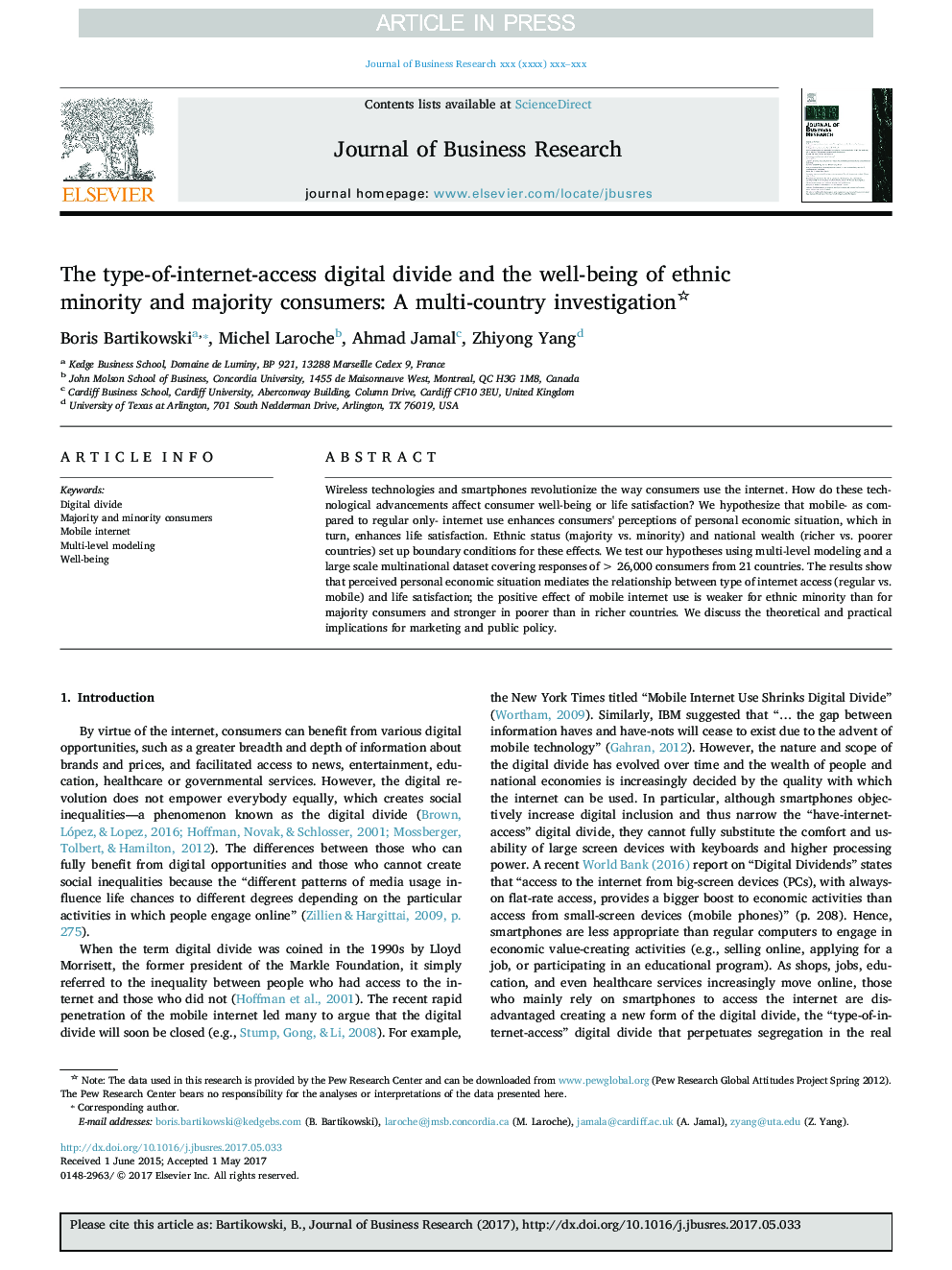| Article ID | Journal | Published Year | Pages | File Type |
|---|---|---|---|---|
| 7425584 | Journal of Business Research | 2018 | 8 Pages |
Abstract
Wireless technologies and smartphones revolutionize the way consumers use the internet. How do these technological advancements affect consumer well-being or life satisfaction? We hypothesize that mobile- as compared to regular only- internet use enhances consumers' perceptions of personal economic situation, which in turn, enhances life satisfaction. Ethnic status (majority vs. minority) and national wealth (richer vs. poorer countries) set up boundary conditions for these effects. We test our hypotheses using multi-level modeling and a large scale multinational dataset covering responses of >Â 26,000 consumers from 21 countries. The results show that perceived personal economic situation mediates the relationship between type of internet access (regular vs. mobile) and life satisfaction; the positive effect of mobile internet use is weaker for ethnic minority than for majority consumers and stronger in poorer than in richer countries. We discuss the theoretical and practical implications for marketing and public policy.
Related Topics
Social Sciences and Humanities
Business, Management and Accounting
Business and International Management
Authors
Boris Bartikowski, Michel Laroche, Ahmad Jamal, Zhiyong Yang,
